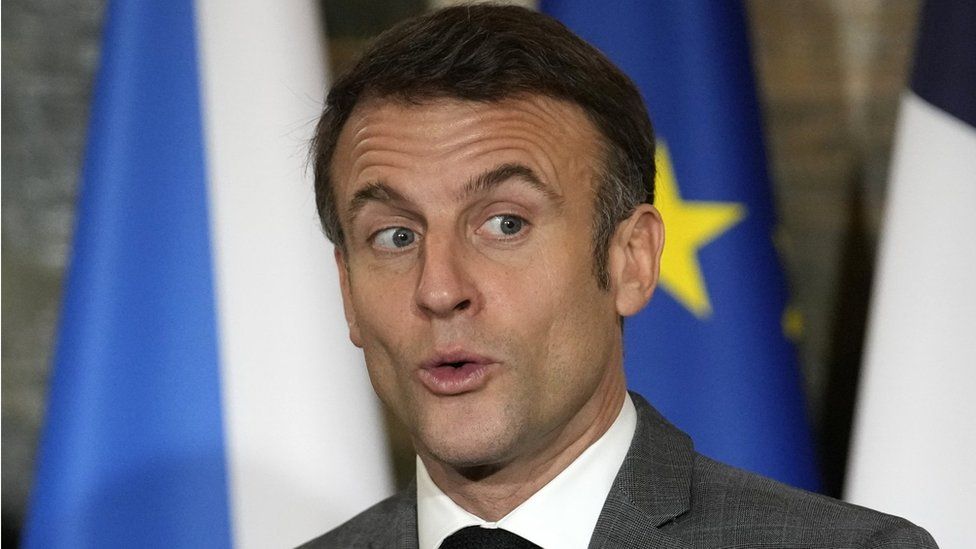-

-
-
Loading

Loading

French President Emmanuel Macron has defended a controversial immigration reform, describing it as a "shield" against an influx of illegal migrants. The tougher legislation, which was passed by MPs on Monday, aims to make it more difficult for migrants to bring their family members to France and delays their access to welfare benefits. However, the bill led to a split within Macron's centrist Renaissance party and his health minister resigned. Marine Le Pen's far-right National Rally supported the bill. Leaders of one-third of French regions announced their refusal to comply with certain measures in the law. Speaking on the France 5 TV channel, Macron acknowledged that France has an immigration problem and insisted that the new law acts as a necessary shield to combat this issue. He emphasized the government's commitment to supporting the measure and calming tensions in the country. Macron also expressed respect for the decision of Health Minister Aurélien Rousseau to resign. Critics argue that the legislation discriminates between citizens and migrants, including those residing legally in the country, particularly regarding eligibility for benefits. The bill also prohibits the detention of minors in detention centers. Le Pen celebrated the amended bill as an ideological victory for the far-right, while left-wing opponents accused Macron of enabling the far-right and betraying their ideals. Additionally, 32 of France's 101 departments, including Paris, declared their refusal to implement certain provisions of the law concerning benefits for non-citizens. The legislation will now undergo review by France's highest constitutional court. In a separate development, EU governments have reached a tentative agreement to reform the asylum system among the bloc's 27 member states. The agreement, which is still pending ratification by the European Council and the European Parliament, focuses on streamlining the vetting and deportation processes for rejected asylum seekers. It also enables the relocation of asylum seekers from southern member states, which receive the highest number of arrivals, to other countries within the EU.